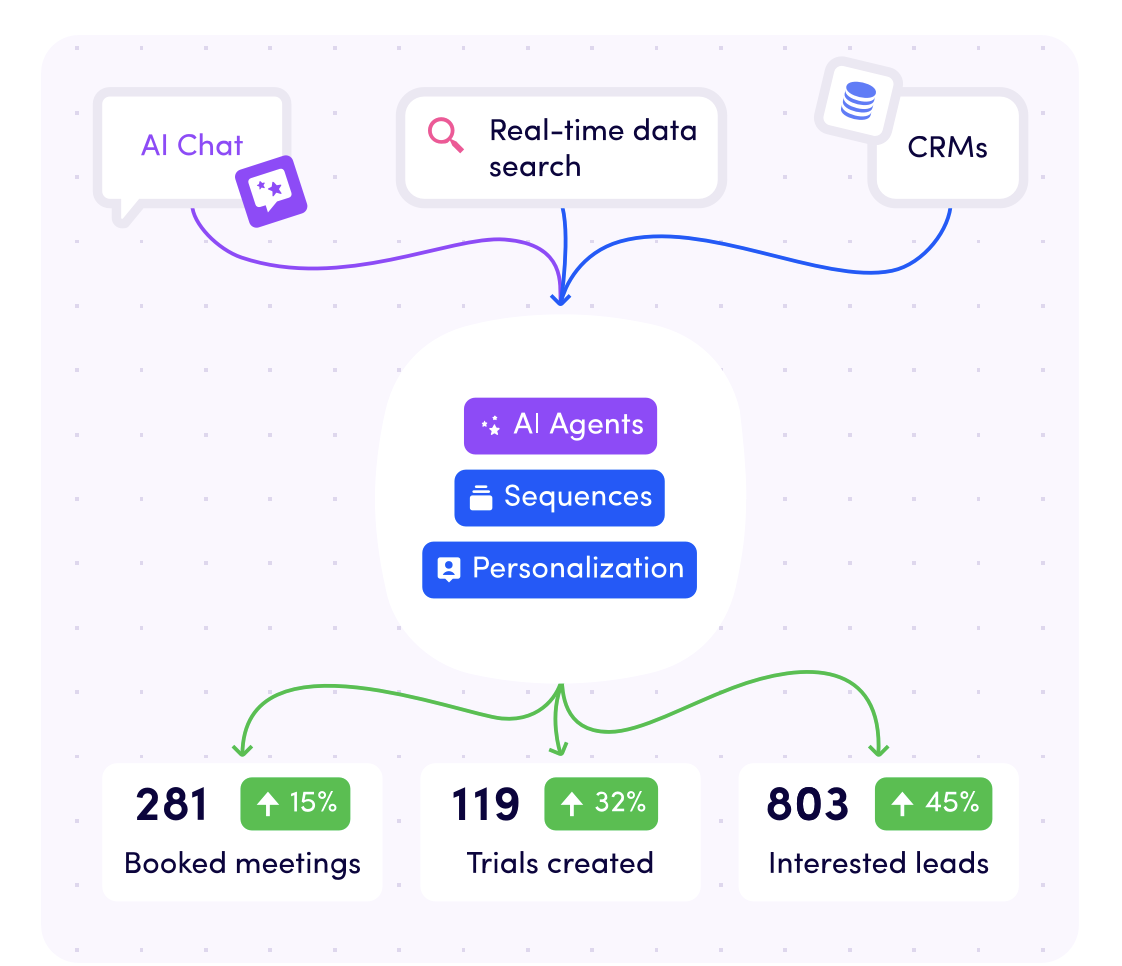Top 5 Digital Marketing Skills to Master in 2021 & Beyond

COVID-19 has rapidly transformed how we live and work. Okay, we all know that. So let’s break it down with some numbers. Mckinsey reported that the pandemic sped up Digital Transformation by a factor of 30.
With 5 years of digital transformation achieved in just 60 days of the first lockdown.

As a result, digital marketing has never been more in-demand and only looks set to grow in the future. At Growth Tribe we recently released our Skills of Tomorrow Report 2021 which outlines the top skills to master as a marketer to stay future proof. .
So you can be in the top 1% and stay at the top of your game. So what skills do you need to master for 2021 and beyond? Let’s find out
The Talkers and The Doers
In the report, we surveyed nearly 1,300 marketing professionals to measure their skills and capabilities. What we found were two clear groups:
The Talkers and the Doers.

The Talkers have high ambitions to acquire digital skills but fail to act on that ambition. While the Doers have high ambitions and take active steps in upskilling themselves.
So here are the top 5 skills to master in 2021 and beyond to move from a Talker to a Doer.
Let’s do it!
Digital Marketing Skill to Master Number One: A Growth Mindset.
In our previous video on marketing skills, we talked about mastering digital psychology to compel and persuade customers. Yet, if Digital Psychology is about your customer, then a Growth Mindset is about you and your team’s psychology.
In his book, Good to Great, Jim Collins set out to discover what made some companies go from being good to great. He embarked on a five-year study of companies whose stock returns had skyrocketed relative to their competitors.

There were several important factors, but one of the most important was the type of leader who led the company into greatness. They were not the larger-than-life characters who were full of ego. They were modest people who asked questions and had the ability to confront brutal answers.
And we have all been there. We have let a fear of failure hold us back. But having a Growth Mindset, or being a Growth Mindset Leader means looking failure in the face, with a belief that you will succeed in the end.

While it may not seem like an outright skill, it is fundamental to addressing skills, as Growth Mindset leaders and teams are constantly looking to improve. They face their own weaknesses and ask frankly what skills they and the company need in the future.
The Doers have a Growth Mindset.
They constantly learn and believe that skills can be developed. They accept mistakes and failures and alter their strategies accordingly. Having a Growth Mindset then is the skill of skills. It is fundamental to being open to learning and developing skills as an individual, as a team and as an organisation.
We highly recommend reading Mindset: The New Psychology of Success, by Dr. Carol Dweck. The World-renowned Stanford University psychologist who founded the idea of a Growth Mindset.

She gives loads of great examples of how and why a Growth Mindset works from across sports, business and even in relationships.
Do you have too many books on your to read list? No problem. Then you can also watch Carol’s TED Talk, The Power of Believing that you can Improve.
Digital Marketing Skill Number Two: Rapid Experimentation
Rapid Experimentation came out as a key weakness in the Skills of Tomorrow report. A key feature of a Growth Mindset organisation is the number of experiments that they run, per day, per week and per year.
And it is a key skill for high performing teams and organisations.
In his book, Experimentation Works, Stefan H. Thomke found that those companies that experiment, significantly outperform the S&P 500 index, in what he called the Experimenters Index.
In the book, he says:

Relying on your manager or leader to define the viability of an idea is the definition of a Fixed Mindset. The very opposite of a Growth Mindset. Instead, launching rapid experiments provides rapid learnings and growth for teams and businesses. And the lessons often fly in the face of what you think you know.
Being open to being wrong on your assumptions, and testing and learning is fundamental to your success.
We highly recommend watching David’s Video on the GROWS process, developed to help companies grow with an experiment-driven approach.

You can also check out David Bland and Alex Osterwalder’s book, Testing Business Ideas A Field Guide for Rapid Experimentation - a simple, practical field guide that includes a robust framework and step-by-step descriptions of 44 experiments to systematically test marketing ideas.

And finally, it is an old one but still a good one, check out the article from Harvard Business Review.
A Step-by-Step Guide to Smart Business Experiments
As they discuss: companies that embrace this data-driven approach will be able to delegate authority to run small-scale experiments to even low levels of management. This will encourage out-of-the-box innovations that lead to real transformation.
Are you curious to see how you're doing in the digital realm?
👉 Our cutting-edge free IQ test is the key to unlocking your inner digital genius. Find out your IQ score today!
We measure your cognitive ability in the most in-demand digital skills
- Digital Marketing
- Data Science & Analytics
- Project Management
- Emerging Technology
- UX Design
- Programming/Coding
- Web Design/Development
The report will give you an IQ score, as well as a breakdown of your strengths and weaknesses in each of the digital skills we measure.
Digital Marketing Skill number 3: Data & Analytics
Arguably the most important skill on this list is the ability to make use of Data to inform decision making.
We saw that the biggest difference between the Talkers and the Doers was using data insights from experiments, presenting experiment data, and having a clearly defined data strategy.

We live in a world where technology has enabled data collection on a scale never before seen. The numbers are mind-boggling.
In 2020 the entire digital universe is estimated to have reached 44 zettabytes - which means there are 40 times more bytes than there are stars in the observable universe. And In the last two years alone, an astonishing 90% of the world’s data has been created.
Yet, despite all this data, the greatest shortcoming is that leaders and teams are not utilising it to gain insights and drive decisions. There is simply a lack of skills. And in an increasingly complex world, where market conditions can change rapidly, you need to be able to evaluate which marketing efforts are making progress.
As management guru, Peter Drucker famously said:

Today it is easier than ever to get an idea off the ground. The barriers to entry have almost disappeared. Cloud computing is free, social media is free, competitive research is free.
We live in a digital world and the bits don’t cost anything. Data is abundant. This means you can build and launch something, measure its effect, and learn from it to build something better next time.
And that is where being data-led and analytics comes in. There is still of course a place for instinct and experience. These are the source of your inspiration

So what are some useful resources to become more data-led and to upgrade your skills?
We highly recommend reading Lean Analytics. Here you can learn the lean methodology, analytics fundamentals, the data-driven mindset, finding the one metric that matters, types of business models and tons of case studies and examples.

You could also try out Google’s suite of learning materials on Google Analytics, Google Data Studio and much more.
Or, why not take a look at GoPractice.io, from marketing guru Sean Ellis. Go Practice is a Simulator for Learning Data-Driven Product Growth. Learn how to use data to build and grow products in this immersive simulator. You’ll go beyond theory to learn by doing. And work with real data in leading analytics tools like Amplitude and Sensor Tower.
Digital Marketing Skill Number 4: Using Attribution Models
There is a famous quote that says:
“Half the money I spend on advertising is wasted; the trouble is I don't know which half.”
A lot has changed since this was said. In 2001, the average consumer used only two touch-points when buying an item.Today, consumers use an average of almost six touch points, according to Oracle. But do you know which touch points are the most important in your customers' buying journey?
Luckily Attribution models do.
They determine which touchpoint gets the credit for your sales. Let’s use an example of a customer journey, and where an attribution model can help.
Let’s say a customer finds your site by clicking one of your Google Ads. She returns one week later by clicking over from a social network. That same day, she comes back a third time via one of your email campaigns, and a few hours later, she returns again directly and makes a purchase.
So the question is: which marketing channel gets the credit?
Well, it’s not that simple really, as they all played a part.
And so there are six common attribution models that you can use:
1) First Interaction,
2) Last Interaction,
3) Last Non-Direct Click,
4) Linear,
5) Time-Decay
6) Position-Based.>
They all attribute credit in their own way. We won't go into the details of each here, but there is a great explanation from CXL here for you to check out if you want to read up more. And there are a number of tools out there that can manage cross channel attribution modelling. Including:
- HubSpot
- Ruler Analytics
- Branch
- Active Campaign
- C3 Metrics
- Windsor.ai
- Attribution
- DreamData
Digital Marketing Skill Number 5: Sharing Learnings
According to International Data Corp companies in the Fortune 500 lose a combined $31.5 billion per year from employees failing to share knowledge effectively.

We’ve all been there. Trying to recreate the wheel, repeating others’ mistakes. Or wasting time searching for that resource you need.
It can be frustrating. And it's not very efficient. And with remote working during COVID-19 and the lack of easy, face-to-face interaction it is even more important to make sure that learnings are being shared across your team and organisation.
According to Professor Christopher G. Myers, at Johns Hopkins University
People can more effectively learn through collaborative, two-way interactions with others at work.
The person learning and the person sharing knowledge work together to construct an understanding of an experience, which better equips the learner to apply it in their own work. Interactive conversation and questioning allows the learner to understand the underlying reasons behind someone else’s actions
Making it easier to adapt what’s learned to a new situation or task.
So how to put it into practice?
First up, create a designated space for hands-on learning. Our environments directly affect how we interact.
We need to create spaces, virtual or in-person if possible, that facilitate hands-on learning.
Next up, Endorse hands-on learning
Leadership should be encouraging employees to seek and share experiences often.
So individuals feel confident seeking out knowledge, without worrying about being annoying.
Finally, Plant starter seeds of vicarious learning
Leaders can encourage greater learning by jump-starting the process.
For example, setting aside time at the beginning of meetings for people to discuss challenges and problem-solve together.
Want to find out more?
Try reading HBR’s article: How to Help Your Employees Learn from Each Other
Or check out the book, THE EXPERTISE ECONOMY How the Smartest Companies Use Learning to Engage, Compete, and Succeed. And the chapter on peer-to-peer learning.
We are also writing a book at Growth Tribe, called Upgrading Brains. It's about how to build a learning organisation and touches on this topic in detail.
You can sign up to be the first to hear about its release and a sneak peak of the content by following this link.
So there you have the top five digital marketing skills to master for 2021
So you can stay on top of your digital marketing game. Don’t forget to check out the Skills of Tomorrow Report.
You can watch the full video of this article here - share it with your friends and colleagues, and subscribe to our YouTube channel for more videos released every Wednesday.
Want to Upgrade Your Digital Marketing Skills?
Look no further!
Harness the power of online channels to maximise your impact. Learn digital marketing strategies and tools to turbocharge business growth online.
Digital marketing has become an indispensable part of the modern business landscape. Leveraging the power of digital channels, businesses can connect with their audiences, build brand awareness, and drive revenue growth.
Are you ready to elevate your digital marketing skills and stay ahead in this ever-evolving field?
So how can you learn more about Digital Marketing?
As a leading educational course provider, we created the most effective Digital Marketing Course you can find!
This comprehensive course is designed to equip you and your team with the knowledge and skills needed to excel in the digital marketing arena.
6 modules | 61 lessons | 23 videos | 6 tests | 6 exercises
- Module 1: Introduction to Digital Marketing
- Module 2: Tracking and Analytics
- Module 3: Targeting your audience organically
- Module 4: Targeting your audience using paid media
- Module 5: Retargeting your audience
- Module 6: Landing page optimisation
Learning with Growth Tribe couldn’t be easier. All of our courses are designed to be flexible for the learner with self-paced content so you can manage your time and learning to suit your lifestyle best.
Join a community of over 35,000 certified alumni who share a passion for growing their skills and positively impacting their careers.
Categories
- Business & Innovation (83)
- Growth & Marketing (72)
- Artificial Intelligence (53)
- Data & Analytics (16)
- Case studies (10)
- Project Management (10)
Related articles
Latest articles
AI in Finance: Why You Need It Now
Imagine a world where loans are approved in seconds. Sounds...
ChatGPT Search Unveiled: Should You Make The Switch Now?
Picture this: You’re no longer just “searching” the web—you’re...
Shadow AI Explained: How to Harness Hidden AI Without the Risks
Picture this: your team is under pressure to deliver results—fast....
The 33 best AI tools for commercial teams
The tools are split into 2 categories The best AI tools for your...

















